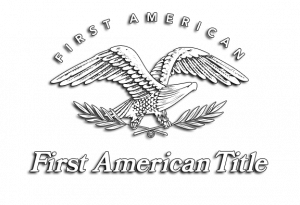Areas of expertise
Banking & Finance
Carlile Patchen & Murphy LLP is a leader in the field of banking & financial law with expertise in commercial lending, workout strategy, real estate title work & other financial transactions. Having earned a reputation for prompt service and creative problem solving, CPM represents nearly every major financial institution in Columbus, as well as out-of-state lenders. We also represent borrowers, brokers and parties supplying credit enhancement in connection with financings of all sizes and degrees of complexity, as well as parties engaged in acquiring financial institutions.

Our Banking & Finance Legal Services include:
Commercial Lending Representation
Our Banking & Finance practice deals with corporate financings, asset-based lending and other secured transactions, lease financings, mortgage and construction financings, investor note financings and all forms of term and revolving credits.
Workout Services
Our services do not end at the closing. When a client or a client’s customer develops financial difficulties, our Banking & Finance Practice Group will work closely with all concerned to develop a workout strategy. We have represented borrowers, lenders and other interested parties in a broad range of workout situations – from restructurings, refinancing and reorganizations – to bankruptcies, liquidations and foreclosures.
In-House Title Agency
Our title agency, Cornerstone Title, is an agent for Old Republic National Title Insurance Company and First American Title Insurance Company. Cornerstone Title Agency, LLC is a wholly-owned subsidiary of CPM and provides a full range of title services to our clients.

![]()
Commercial Financing
The Banking & Finance attorneys at Carlile Patchen & Murphy LLP represent regional and national financial institutions, community banks, life insurance companies, captive lenders and other commercial lending and credit professionals in the documentation of commercial asset-based, real estate, second lien or mezzanine credit transactions. Our attorneys ensure legal, regulatory and internal compliance are met before the financing is completed.
+Commercial Loan Documentation
The key to success and risk avoidance in commercial lending is in-depth, insightful knowledge of the documents, which are essential to the transaction. Our attorneys have experience with complex loan structures and all types of collateral and credit enhancements. We have extensive knowledge of the Uniform Commercial Code (UCC); and we work hard to help lenders balance the legal and business risks associated with booking and maintaining loan transactions and borrowing relationships.
+Commercial Loan Workouts and Restructuring
Our attorneys are skilled in representing commercial lenders when dealing with workouts of troubled loan facilities. We aid in restructuring and modifying troubled credits through loan modifications, forbearance agreements and other pre-litigation strategies. When restructuring cannot be accomplished, our attorneys offer a wide variety of litigation and enforcement remedies to advocate for our clients including – replevins, foreclosures, receiver’s sales, executions and garnishments.
+ Representation of Borrowers
Carlile Patchen & Murphy LLP attorneys are experienced in structuring, reviewing and negotiating commercial credit transactions for our borrower clients. We have assisted clients with all types of conventional credit transactions (asset or real estate-based, public or private), but also extends to syndicated credit facilities and Housing and Urban Development, Federal National Mortgage Association and Federal Home Loan Mortgage Corporation loans for nursing homes, residential care facilities and multi-family properties.
Read more about how we can help with Commercial Real Estate Transactions.
Creditor Rights Attorneys
The Carlile Patchen & Murphy LLP Creditor Rights Group offers a multi-jurisdictional, comprehensive legal strategy for accounts receivable management. With our creditor rights counsel, the goal is to ensure our banks, credit unions, medical groups, and retail and commercial clients, obtain maximum recovery of the debt owed in a timely manner while managing costs.
How can we help you today?
Give us a call or send a message with any inquiries and legal questions.
© Copyright 2022 – Carlile Patchen & Murphy LLP | Terms and Conditions | XML Sitemap







